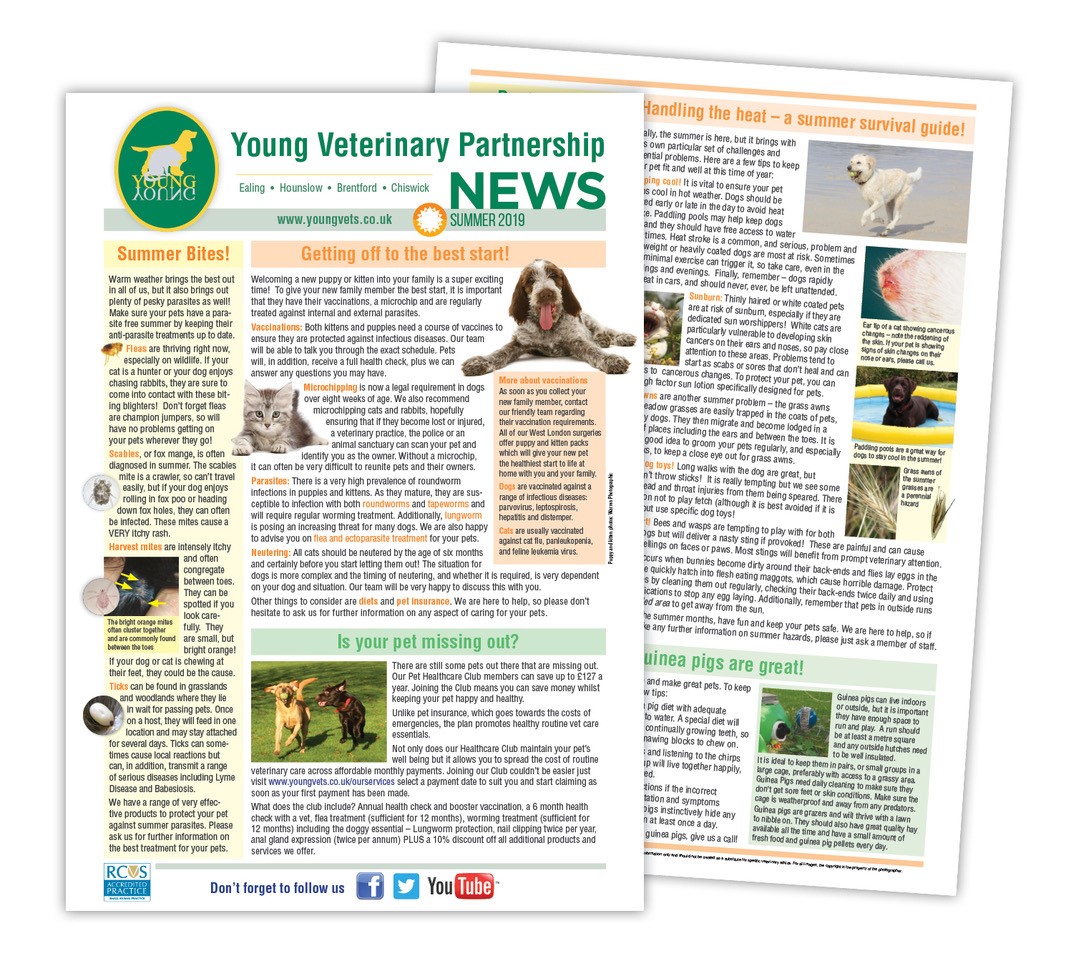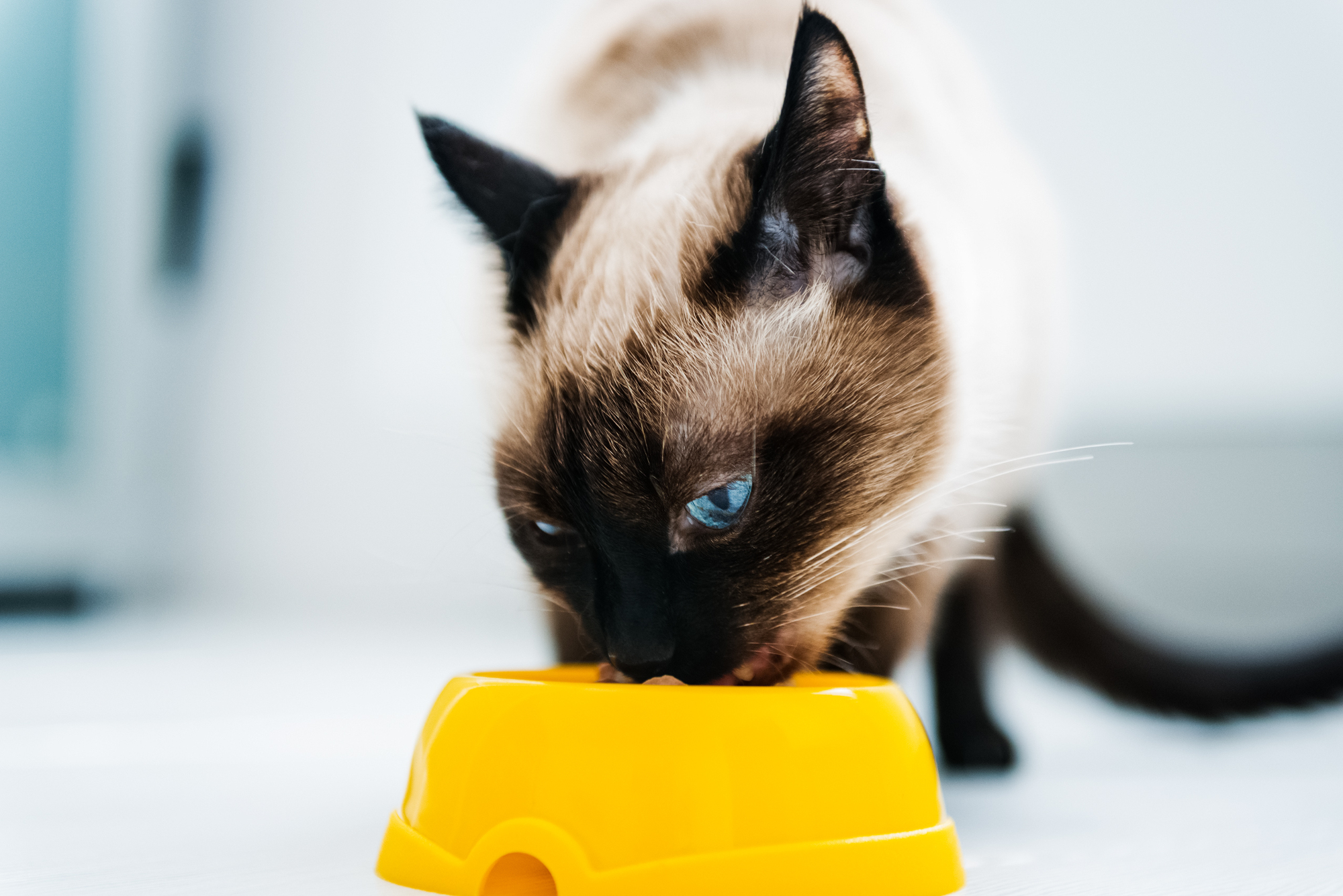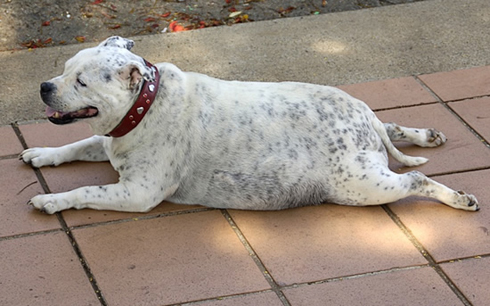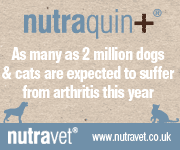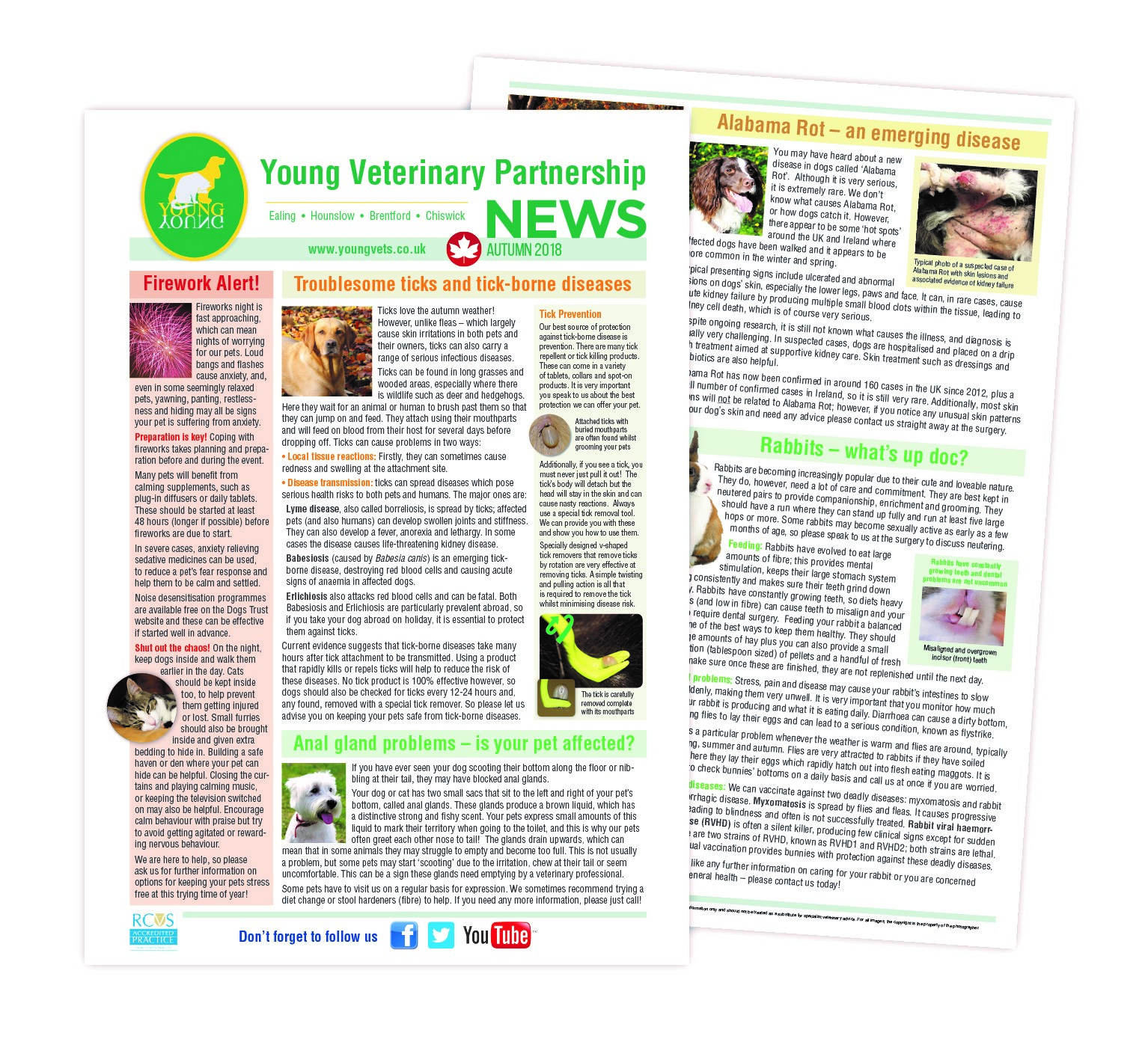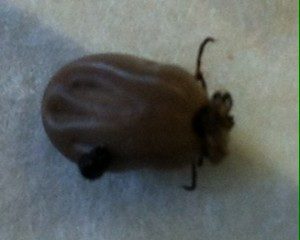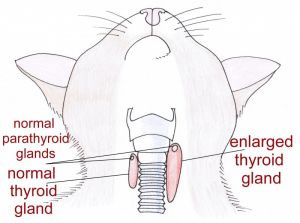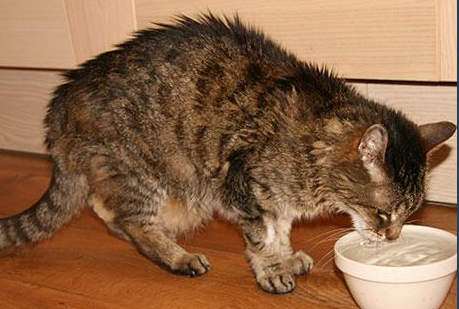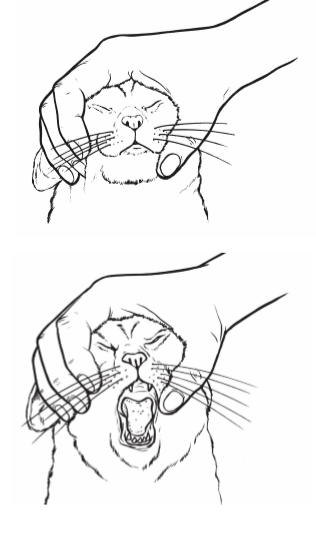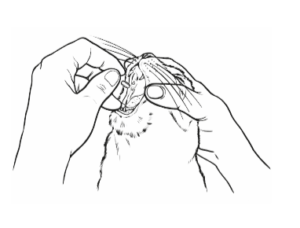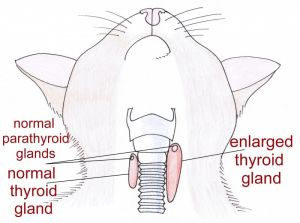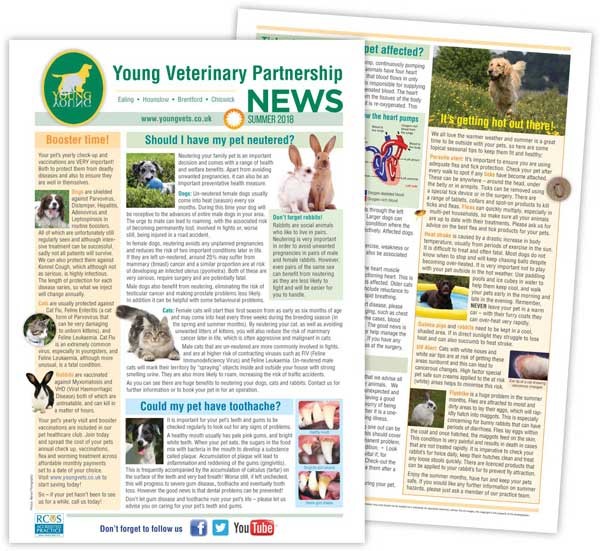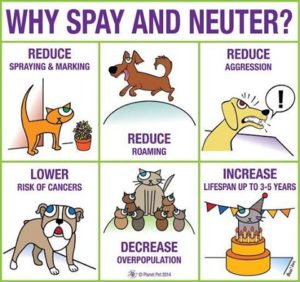What To Do If Someone Else Is Feeding Your Cat
Here at Young Veterinary Partnership, we’ve noticed an increasingly common problem amongst UK cat owners: other people feeding your felines. Although on the surface this doesn’t seem to be too much of an issue, it can actually have some pretty serious consequences, whether those putting out food realise it or not.
The actual act of feeding local felines usually comes with good intentions, but that can make it all the harder to address. Potentially leading to obesity, ill health, and even straying, it’s a kind act that can have dire consequences, but lots of pet owners don’t know how to prevent it.
Is it a bad thing for someone else to feed your cat?
If it’s never happened to you, you might be wondering why having someone else feed your cat poses such an issue, but it can have some pretty upsetting consequences. Aside from causing your cat to gain unwanted weight, and suffer the potential health problems associated with this, it can also, for some felines, exacerbate existing digestive issues, especially if those doing the feeding are putting out unsuitable foods and liquids. This can be the case with any food that’s not been specifically designed for cats and which can lead to vomiting, diarrhoea, and appetite loss, as well as the resultant costly vet visit to treat this.
On a secondary note, it can also lead to your cat either refusing to eat at home, as it prefers the food it’s finding elsewhere, or no longer coming home at all. This is obviously a very upsetting scenario for pet owners who find that someone else has taken it upon themselves to care for their pet, and thus, in effect, made it their own.
How it can affect your feline
We’ve already explained above why somebody else feeding your cat can be detrimental to them, but now let’s look at its effects in a little more detail. There are some very good reasons why experts encourage individuals not to do this, and one of the first is that it can trigger an unneeded vets trip. This is because your furry friend is likely to eat less at home, a symptom that causes many a vigilant owner to fear that their animal is unwell and to take their pet to the professionals. As well as the emotional and financial consequences for you, this can cause unnecessary stress for your cat too.
The other side of the coin here is that your cat doesn’t eat less, and risks obesity and the additional stress this puts on the heart and joints. This can lead not only to an increased risk of cardiac problems, but also a greater likelihood that your feline will develop painful arthritis later in its life.
The risks are even greater if your feline has a diet-controlled health condition, such as dietary sensitivity or diabetes, which may be jeopardised by such actions.
A further danger arises if the individual feeding your cat gives them raw meat. Although this may seem like a natural part of a feline diet, it can actually carry diseases such as toxoplasmosis, which can not only affect your pet but can also be transmitted to humans and poses a serious health risk during pregnancy.
Increased risk of straying
Finally, there is the increased risk of straying. Not only can this mean that your beloved pet stops coming home altogether, but also that they are more likely to cross roads, and be involved in an accident as a result, becoming one of the 300,000 plus cats that are killed on UK roads each year.
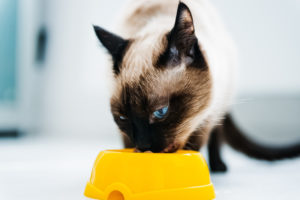
How to tell if your cat is overweight
One of the main risks that you run when other people feed your cat is that they end up becoming obese. To work out whether your feline would be classed as such, and is thus at risk of the health problems associated with being an overweight cat, you ought to look out for the following:
- Looking at your cat from above, can you see a noticeable ‘waist’ between their ribcage and hips? If fluff is getting in the way of you performing such an appraisal, lightly run your hands along your cat’s sides to feel for this indentation. If you cannot find it, he or she is likely overweight.
- Looking at your cat from the side, do they have an upwards slope from their ribcage to their back legs? If not, and you can see a tummy pouch instead, they might need to go on an overweight cat diet.
- Finally, can you feel your cat’s spine and ribs without pressing too hard? If not, they’re probably too fat for their own good.
How to help your cat lose weight
If, based on the checklist above, you feel that your cat is too fat, we advise that you try the following cat weight loss tips to help them regain their formerly trim figure:
- Feed little and often with specially formulated cat food for overweight cats.
- Don’t give them any scraps from your own table.
- Reduce their treats.
- Only feed your cat from his or her bowl, so that you can more easily monitor how much they’re getting.
- Give your furry friend some extra attention so that they don’t eat extra because they’re bored.
- Pop in, all of our surgeries off FREE weight checks and diet advice.
And, most importantly, consider ways to stop others from feeding your cat (more on that below).
How to prevent it happening again
Knowing that someone else is feeding your cat, and stopping them from doing so, are two entirely different matters, especially if you’re unsure of who exactly the culprit is. Begin by seeing if you can discover their identity by knocking on doors locally or putting up posters. Hopefully this will help you to find the person who’s responsible, or at least make them aware of the issue so that they stop giving your pet unneeded extras.
You might also want to put a paper collar on your pet, one with a message requesting that they are not fed, along with your contact details in case the person who was doing so wants to get in touch and let you know where they’ve been.
Additionally, try posting on local Facebook lost and found groups, as a lot of the individuals who feed other people’s pets do so because they see them around the area and mistake them for strays. Many will post on these sites to see if your feline has a home, so it may be that you have the chance to inform them that they do.
Finally, if you really can’t get a handle on the problem, you might want to consider keeping your cat as an indoor-only pet. This way, you know for sure that nobody but you is in charge of their diet and that their needs are being properly met.
Follow our top tips and tricks today to get on top of the problem and keep your pet looking and feeling fabulous. If you have any questions about this article please don’t hesitate to contact our knowledgeable team for more advice.
Blog and images supplied by Zoetis.
Written by Edwin Gildea MVB MRCVS.




